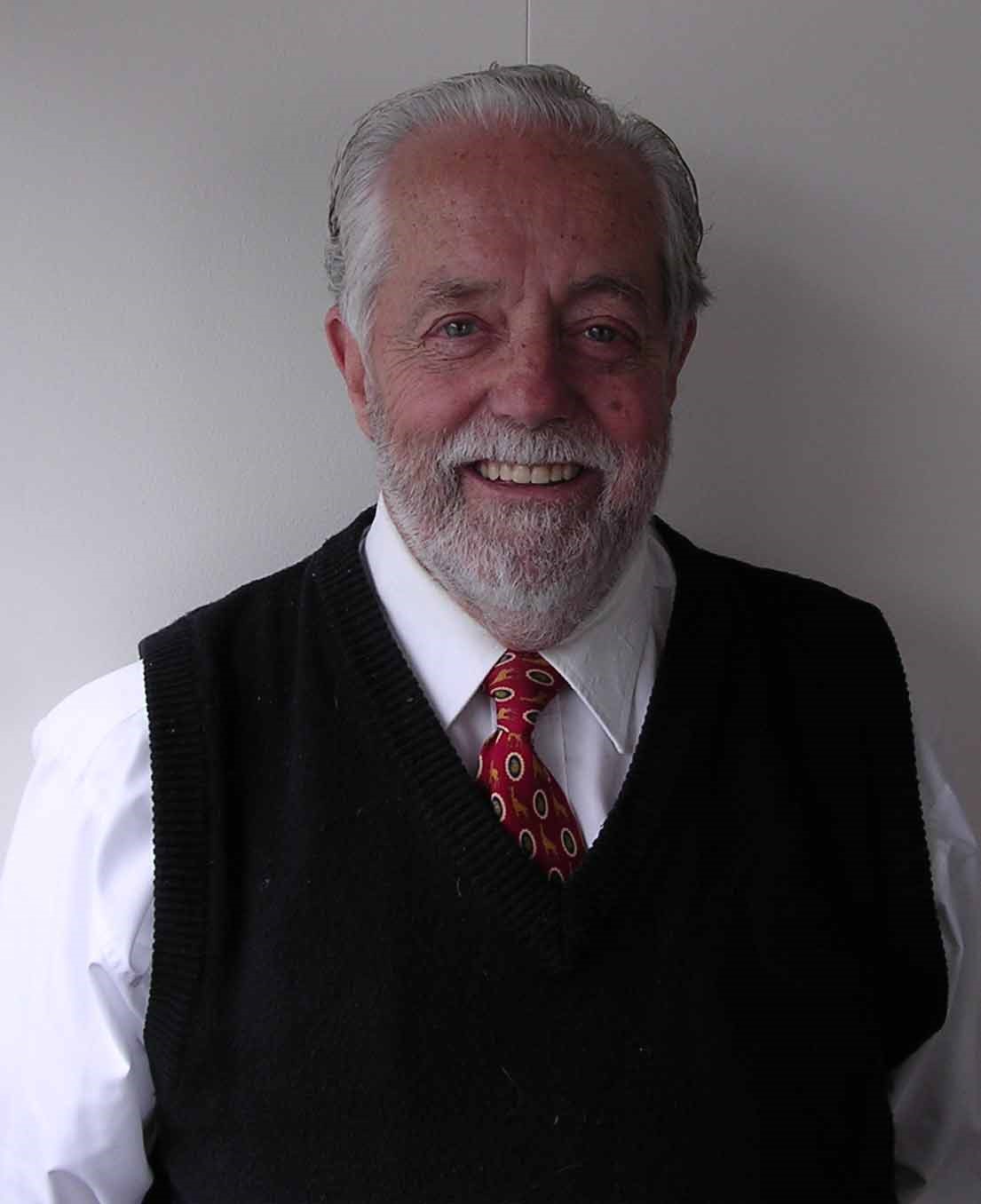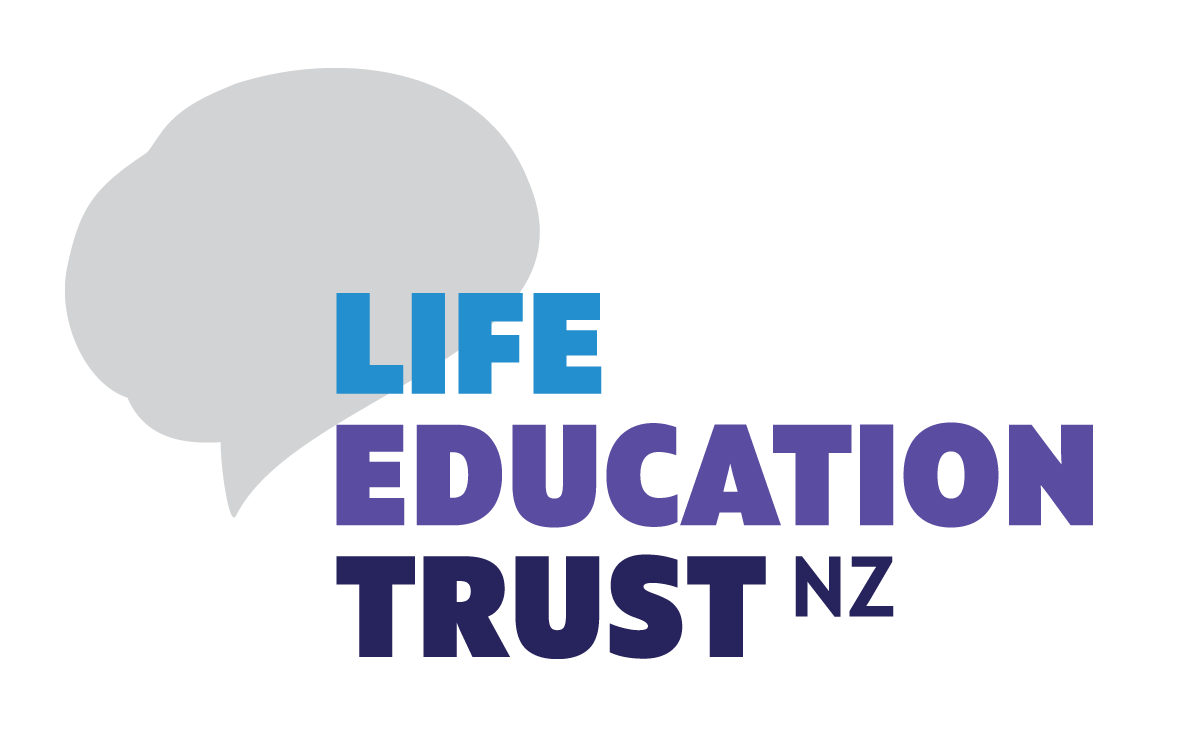Tribute to Life Education founder, Trevor Grice
 |
Trevor Grice, the visionary founder of Life Education Trust, died in December 2024, aged 92.
Trevor's passionate advocacy for the health and wellbeing of young people has had a profound impact across Aotearoa. Through his work counselling young people and their families in crisis and dedication to Life Education in New Zealand, he touched countless lives, leaving a legacy that will continue to inspire future generations. |
Trevor’s approach to education was influenced by a difficult childhood. Born in Christchurch, Trevor was one of seven children. When he was five years old, his father was killed in a freak accident. Trevor’s mother worked hard to support her family, but became very sick and many responsibilities fell to Trevor and his siblings. Trevor suffered from malnutrition and was admitted to an orphanage (Cholmondeley Children’s Centre) for several months at the age of 10. While he missed a lot of school through illness, Trevor was greatly encouraged by his grandmother, who told him he could do anything. Trevor later said: “raising a child without love is like trying to clap with one hand”. The importance of kindness, love and respect later became a key component of Life Education’s primary school health programme.
After leaving high school in his early teens, Trevor began a cadetship with the NZ Post Office, where he become a senior telegraphist. In 1967, Trevor joined ‘Operation Deep Freeze’, the United States Antarctic Programme based at Christchurch Airport, as a supply officer. During the following years, Trevor became progressively involved with managing issues that arose with service men and women on the ice. He’d seen the damaging effects of addiction, as a child witnessing extended family members using alcohol to drown their sorrows and later developing a drinking problem himself. After 15 years of battling addiction, Trevor successfully recovered with the help of AA.
When Trevor moved into the role of Executive Administrator for New Zealand Affairs, he took on responsibility for the recognition and treatment of drug and alcohol dependencies. In this role, the US Navy gave Trevor opportunities to continue his learning, and he attended many treatment centres and institutes in America. Through this line of work, Trevor began to gain a reputation as a family crisis counsellor. He noticed that most youngsters in trouble believed they were worth nothing, their low self-esteem seeded in early life. He recognised the importance of providing children with knowledge and skills so they could make informed choices about their health and wellbeing.
In 1987, Trevor was headhunted by a group of Canterbury business people who had heard about Life Education in Australia and were interested in funding it in New Zealand. Trevor went to Australia to meet founder Ted Noff, only to find that he was in hospital having suffered a stroke. However, Ted’s wife Margaret met Trevor at Ted's famous Wayside Chapel (in Kings Cross, Sydney, a renowned drop-in centre for addicts looking for help) and left Trevor to read through Ted's writings.
As Trevor read, he fell in love with the idea of Life Education. He loved the innovation of the programme, of capturing children's imagination using technology and building their self-esteem at a young age. Trevor’s wife Judith remembers him being enraptured by “the whole idea of education being key to prevention”.
Trevor began talking to potential funders and trustees about why Life Education should come to New Zealand. The founding group hit a stumbling block when the stockmarket crashed in 1987 and funds dried up. But Trevor had a great passion for the concept and continued to speak to groups of people until it gained traction. During times of adversity, Trevor would often refer to his grandmother, who told him “Strength comes from struggle, dignity comes from achievement.”
In 1988, Life Education Trust New Zealand was formed and the first two mobile classrooms were imported from Australia for lessons to begin in Auckland and Christchurch. The organisation’s patron, David Wale, set up the organisation’s current operating model of community trusts with a small national headquarters based in Wellington. Within 10 years, more than 30 regional trusts were established and $30 million had been fundraised, as Trevor shared his vision and enthusiasm with volunteers throughout the country.
Community ownership and independence from government has remained a cornerstone of the organisation, meaning the content of programmes is outside political influence and delivery not reliant on funding commitments from governments of the day. Trevor was supported by David Wale, Bryan Johnson and John Benton of the then Jarden Group and others such as John Beattie and Roy Savage through their business relationships, securing corporate and private supporters.
Initially, Life Education’s New Zealand teachers followed the Australian programme model, with set lessons on nutrition, substances and relationships. The programme content and style has evolved to reflect issues facing New Zealand tamariki and meet changing expectations of schools. Harold the giraffe was retained as a mascot and teaching tool “because he looks up rather than down at his shoelaces” and for many he has become an iconic part of the primary school experience. After the first two mobile classrooms were imported, they began being built in New Zealand. The classrooms are designed to be unique and memorable environments, with lights, audio-visual equipment and sounds adding to the magic. The Healthy Harold programme is now co-designed with classroom teachers, with each lesson individualised to the group of students.
In 1996, Trevor and Tom Scott published “The Great Brain Robbery”, a book about the effects of various drugs on the maturing brain. Trevor always sought creative ways to engage young people and with its unfiltered facts and humorous illustrations, the book was popular with teenagers and parents in New Zealand. It was made available globally and translated into several languages.
Throughout his 30 years working in education, Trevor was a popular speaker on addiction, health and preventative education. He lectured at the NZ Police College, secondary schools and tertiary institutions, government and private agencies, hospitals and businesses.
Trevor’s extraordinary work was recognised in New Zealand and internationally. In 1997 Trevor was made a Member of the NZ Order of Merit (MNZM) and in 2000 he was named as a UNESCO Peacebuilder. Rotary International made Trevor a Paul Harris fellow in 2004. In 2000 and 2005 he was named Wellingtonian of the Year for Community Service and Youth Services. In 2010 he was further recognised as a Companion of the New Zealand Order of Merit (CNZM).
He has seven children, 13 grandchildren and three great grandchildren.
Trevor retired from his ‘day job’ with Life Education in 2014 at age 82. Life Education Trust continues to grow and has now expanded into secondary school education and professional development for teachers.
Trevor’s philosophy continues to guide Life Education Trust’s work today:
Every being is unique. Every body is magnificent. Every person deserves respect.
